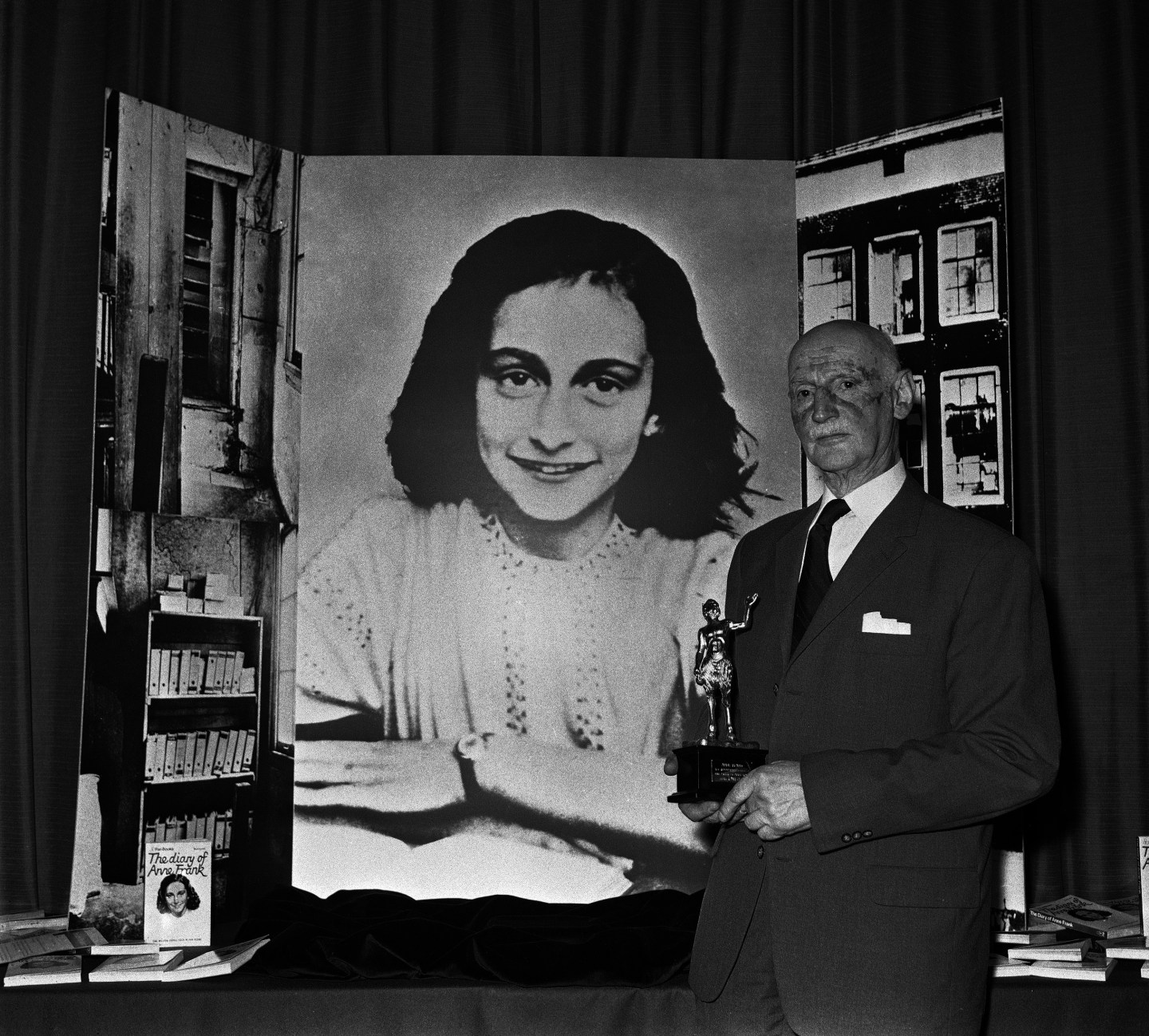The latest battle over copyright doesn’t involve Walt Disney or a hip-hop artist. Instead, a legal fuss is brewing over the private writings of a young woman who died in a concentration camp in 1945. The outcome will determine who controls one of the most important documents of the 20th century, and could inflame a long-running debate over copyright terms.
The Diary of Anne Frank is due to enter public domain in many countries starting January 2016, but a Swiss foundation that owns the copyright to the diary may have found a way to stop that. According to the Anne Frank Fonds, the rights to the diary should stay locked up until 2050 because Frank’s father, Otto, is actually a co-author of the work.
The claim, which first surfaced a year ago, is surprising because Otto Frank, who died in 1980, has long been considered an editor of the diary rather than its author. Frank, the only of his family who survived the concentration camp, decided to publish the work in 1947. He discovered it in the Amsterdam annex where the Jewish family spent years hiding from the Nazis, until someone denounced them to authorities.
While the Swiss foundation’s copyright claim is contested, it could be effective because the foundation has hinted it will sue anyone who tries to publish the diary. In its view, Otto Frank’s co-authorship means it owns the work until 2050, since copyright in Europe lasts for the life of the author plus an additional 70 years. If Anne Frank is the only author, the work will become public in January. (In the United States, a quirk related to foreign copyright law means it will enter public domain in 2047 either way).
As the New York Times reports, the foundation’s claim is unpopular with many, including the Anne Frank Museum in Amsterdam which has spent five years working “with historians and researchers on an elaborate web version of the diary intended for publication once the copyright expires.”
On Twitter, lawyers and legal scholars blasted what they perceived to be overreach by the foundation:
That is a foundation that doesn't understand its mission should be to make the diary as widely available as possible https://t.co/MUkZwBHNBZ
— Nicholas Hentoff (@Nick_Hentoff) November 15, 2015
Heads up MPAA: it's THIS sort of thing, way more than filesharing, that erodes respect for copyright https://t.co/42m9QGxjue
— Parker Higgins (@xor) November 15, 2015
More broadly, the Swiss foundation’s co-authorship claim shows how copyright owners may pursue novel legal theories in order to extend their monopolies. An estate named after Arthur Conan Doyle, for instance, has spent years claiming the Sherlock Holmes character as a “derivative work” in order to prevent stories about the famous detective, which were first published nearly a century ago, from entering the public domain.
Such claims—that extend the copyright of long-dead authors—are hard to reconcile with the original purpose behind copyright in English-speaking countries, which is designed to provide a financial incentive for artists and writers to create new work. The topic is also timely in light of the Trans-Pacific Partnership, a proposed trade deal that seeks to extend the life-plus-70-year copyright term standard to more countries.
Make sure to sign up for Data Sheet, Fortune’s daily newsletter about the business of technology.
For more on copyright rules, check out the following Fortune video:













